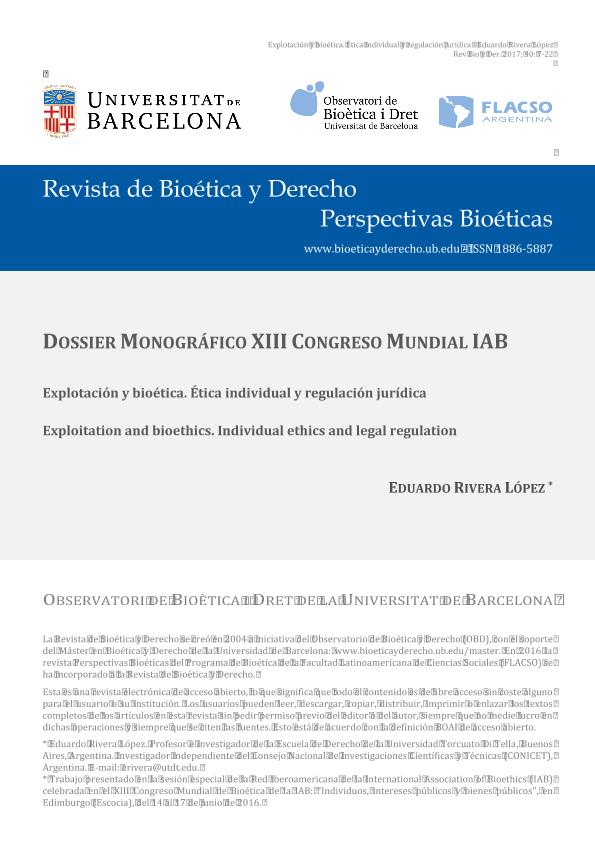Artículo
En este artículo discuto los contratos o transacciones explotativas en bioética. El caso más problemático teóricamente parece ser el de lo que Allan Wertheimer llama explotación “mutuamente ventajosa”: el consentimiento de la parte débil (D) para realizar la transacción es un consentimiento efectivo y racional. Además, D no sufre un daño mediante la transacción, sino que, por el contrario, esta transacción lo beneficia en comparación con no realizar la transacción. Mi objetivo en este trabajo es, por un lado, presentar, desde el punto de vista de la ética individual, un modelo para pensar la naturaleza de la incorrección que podemos asignarle a la conducta de la parte fuerte al contratar con D en forma explotativa. En segundo lugar, ofrezco algunas razones por las cuales, en el plano de la ética jurídica, la prohibición jurídica de este tipo de conductas explotativas es problemática y sólo podría ser justificada en casos muy excepcionales. In this paper, I discuss exploitative transactions in bioethics. The most problematic case is what Allan Wertheimer calls "mutually advantageous exploitation": the weak party’s (W’s) consent for the transaction is an effective and rational consent. Moreover, W does not suffer any harm by the transaction; on the contrary, the transaction benefits W. My aim in this paper is twofold. From the perspective of individual ethics, I offer a model to conceive the nature of the wrongfulness of strong party’s action. From the perspective of legal ethics, I suggest some reasons to believe that the prohibition of beneficial, exploitative, contracts is problematic and can only be justified in very exceptional cases.
Explotación y bioética. Ética individual y regulación jurídica
Título:
Exploitation and bioethics. Individual ethics and legal regulation
Fecha de publicación:
07/2017
Editorial:
Universidad de Barcelona
Revista:
Revista de Bioética y Derecho
ISSN:
1886-5887
Idioma:
Español
Tipo de recurso:
Artículo publicado
Clasificación temática:
Resumen
Palabras clave:
Bioética
,
Explotación
Archivos asociados
Licencia
Identificadores
Colecciones
Articulos(SEDE CENTRAL)
Articulos de SEDE CENTRAL
Articulos de SEDE CENTRAL
Citación
Rivera López, Eduardo Enrique; Explotación y bioética. Ética individual y regulación jurídica; Universidad de Barcelona; Revista de Bioética y Derecho; 40; 7-2017; 7-22
Compartir
Altmétricas




